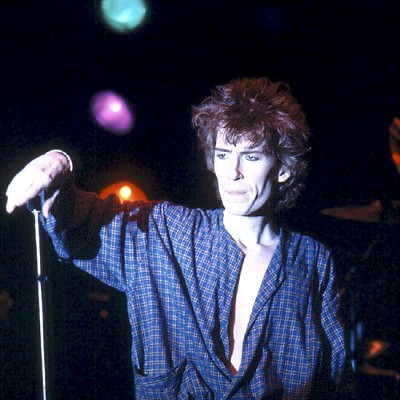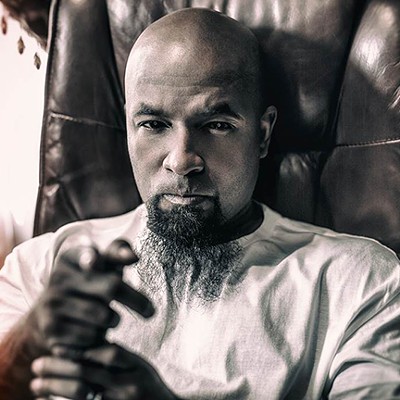PLUSH
Monday, Sept. 26 Mono is from Japan, and they don't do vocals: They let their guitars do the communicating. Their haunting lullabies explode into ground-shaking fuzz and hum: They take harmonics and bend them, coaxing whimpers and moans out of their guitars while sitting down, creating soundtrack noise-rock that is all about the notes playing off one another.
The two bands that opened for Mono, however, were not nearly as captivating: The Double, from New York, are yet another Joy Division-a-la-Interpol band, with overly reverbed vocals and lots of electronic noise, and Bellini just seem to be rehashing a late-'80s punk sound that doesn't sound fresh anymore.
The Double's one guitar player featured mostly high-pitched, distorted chords, while the organ/sequencer/keyboard player released all kinds of strange sounds from his setup. The lead singer played bass. The core of their songs was rhythm, with the melody being driven by the vocals. They were all adept musicians, playing tightly focused songs; it's just that the songs themselves weren't doing anything all that particularly interesting. Bellini has a similar issue: Drummer Alexis Fleisig, also of Girls Against Boys, and guitarist Agostino Tilotta played loud, fast and furious, and the rhythm changes or melody changes mid-song were executed well, but those moments were few and far between.
Mono, on the other hand, was mesmerizing. Although each one of their songs sounds essentially the same, the focus is not on song structure, but on dynamic. Each song began with one or both of the guitar players either sustaining single notes while tweaking the effect pedals, or playing interlocking arpeggios. Poised statuesquely, the bass player softly joins in, and depending on the length of the build, the drummer either snaps you to attention or adds a hypnotic level to the trance. The players go from sitting down to standing up, from swaying gently to flailing about the stage and then back again, in pitch-perfect tune and in time. They behave more like a string quartet than a rock band on stage, masterfully interpreting compositions.
When music lacks any linguistic referent, it is possibly more able to access an almost pre-linguistic part of the brain that locks in to emotion without signs and symbols: It just feels. The audience pays attention to the musicianship, and to the harmonics and sounds emitted from the instruments, and the experience is visceral, purely aural and dreamlike.
Annie Holub
annie holub Mono








